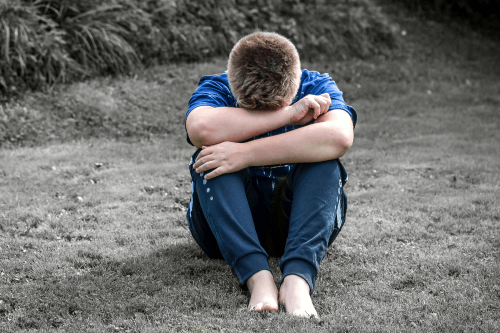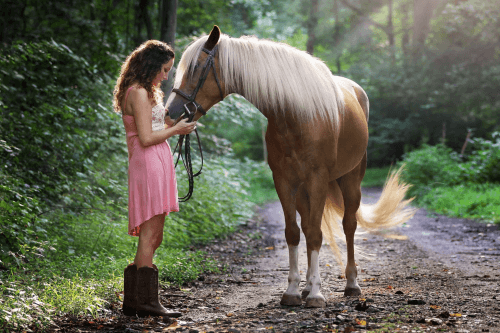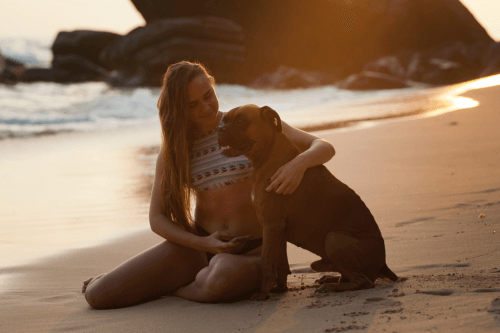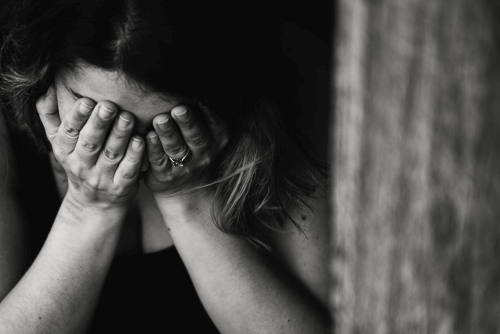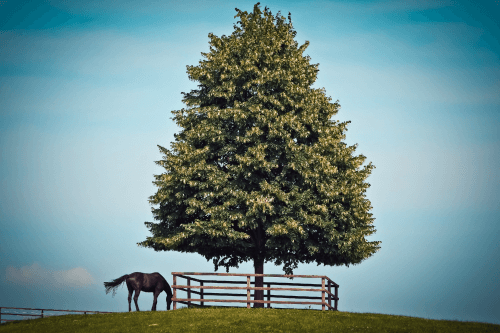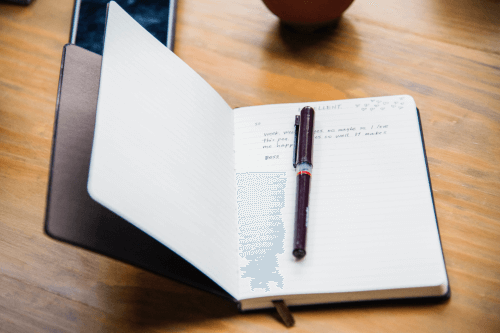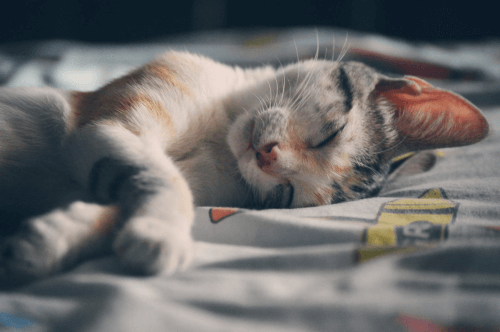Pets enrich our lives and make it more meaningful.
Unfortunately, we are usually going to outlive our pets and many times we must make the incredibly difficult decision to euthanise them.
However, there are many coping strategies to help you while grieving the loss of a pet after euthanasia.
I will cover the top 15 ways to cope with grieving the loss of a pet after euthanasia.

Losing a Beloved Pet is Difficult
Pet owners often experience feelings of grief, loss and guilt after losing a pet, especially to euthanasia. We develop strong bonds with our pets. They become members of our family.
When our animal companions become ill or injured and they begin to suffer we often have to consider the best course of action to help them. Sometimes it becomes necessary to utilise euthanasia especially if your pet has a terminal disease such as cancer.
How Do you Know it is Time to Consider Euthanasia?
A pet’s death can come quickly after an accident or due to a sudden illness, or slowly like old age or terminal cancer.
There are many reasons a pet owner may have to decide to euthanise their pets. It may be that you have a senior pet who needs a very expensive or complicated medical treatment.
Maybe your pet has an ailment that is causing a significant amount of pain that nothing seems to alleviate or is suffering from an illness that has no cure.
Euthanasia is the closest thing we have—to our pet dying in their sleep. The process is quick and painless. They won’t know what is happening. They will just go to sleep.
It is the last, great responsibility of a pet owner, to end our companions suffering—and it is difficult and emotional. We don’t want to say goodbye to our friend. It is normal to feel guilty—for both not wanting to end their life as well as wanting to for their own well-being.
Speak with your vet – they will help you to make this decision—although ultimately it is yours to make.
Pets are exceptional at hiding their pain and discomfort. We have to really watch them to notice the signs and often by the time those signs appear it is too late to do very much to help them.

Take time to really think through the following questions:
- What is your pet’s quality of life?
- Does your pet have a terminal condition or illness?
- Does your pet have a serious injury or cancer?
- Is your pet eating and drinking like they normally would be?
- What is your pet’s behaviour like?
- Is your pet incontinent?
- Does your pet seem to be uncomfortable all the time?
- Does your pet seem disinterested in what is going on around him?
Sometimes you just know it is time.
But if not, these are all good questions to help you make this decision.
Vet’s understand the difficulty in making this decision and are your best resource for expert advice.
It is completely understandable to have reservations about euthanasia.
Something to keep in mind, however, is that while medical advancements are wonderful, those same advancements have often prolonged what would have likely ended your pet’s life naturally before this point.
Euthanasia then becomes the pet owners and the vet’s way of putting things back to a more natural state.
It may help to remember that your pet doesn’t have the same concept of time that we do. All your pet seeks is a happy, healthy life with you, but it doesn’t think in terms of length the way we do. Above all, it is our duty to ensure their quality of life.
You may be able to plan for euthanasia and spend the day or evening before as an extra special time. But do this only if you can without prolonging their suffering.
Once we’ve made the decision to euthanise, we then have to cope with our grief from losing our pet companion.
Grieving the loss of a pet after euthanasia can be a difficult process to go through, but there are things you can do to help yourself through the process.
Top 15 Ways to Cope with Grieving the Loss of a Pet after Euthanasia
Prepare Yourself
The very first step in coping with grieving the loss of a pet after euthanasia is to prepare yourself. Losing a pet is the end of a significant relationship. The process of grief varies for each person.
We are generally aware of the stages of grief; denial, bargaining, anger, depression, and acceptance.
Preparing yourself for the loss of your pet is the first step in coping with your grief. You should consider whether you want to be present during the euthanasia process.
You need to decide if you want to say goodbye beforehand and if you do, how do you want to go about it? Do you want to be alone or do you feel that you need someone to be with you? Have you made burial or cremation arrangements?
We often forget that grief can begin well before our pet is actually gone. This can begin as soon as we realise that our pet isn’t going to get better.
We don’t get any closure during this stage of grief.
We know it is going to get worse before it gets better and all we can do is wait.
Social Support
It is important to get support from family and friends if you can. It can be difficult, however, as the world doesn’t seem to offer the level of support and understanding as it does with the loss of a human family member.
Pet owners often miss work though it isn’t considered eligible for bereavement leave.
Generally, the rest of the world outside those closest to us, expects us to just get on with life. Grieving the loss of a pet after euthanasia isn’t as simple as just moving on and it is important to have others in your life that understand this.
This significant imbalance between animal and human grief understanding can cause pet owners to distance themselves from others during the grief process—however, we shouldn’t do that, we need to interact with our human relationships to help us through this tough time.
Beyond Blue lists several support sites that can be helpful when grieving the loss of a pet. They also have people to talk to.
Anticipate Change in Your Routine
We establish our daily routines around those of our pets—they depend on us and to make sure their needs are taken care of—and we develop routines involving feedings, bathing, exercise and more.
Often our pets become so used to these routines they know what time it is before we do and they usually let us know—especially if we’re running late with a meal or snack.
Often, if a pet has been ill for some time, we have adjusted our routines to theirs even more to accommodate their expanded needs. This can make their loss felt on an even larger scale.
You may experience some feelings of relief in this case. That is okay. It is a normal response.
Most of us like to have a routine—we anticipate what our day is going to look like and it helps us to feel in control.
However, when our routines are built around taking care of our pets—and our pet is no longer there needing our care, we suddenly feel empty and aimless. Grieving the loss of a pet after euthanasia…
To combat this you should fill in those times with other activities—particularly with friend and family, such as having a board game night, visiting a local park or museum, having dinner with friends and volunteering.
Take Time to Grieve
Often the pain of losing a pet is much worse than we anticipate and it is important to take time to process the grief.
Don’t be ashamed to feel your emotions when grieving the loss of a pet after euthanasia. Emotional grief honours the pet you have lost.
Remind yourself that you will find a way through this time.
Because the grief process affects us on every level—physical, emotional, mental and spiritual—we have to allow ourselves time to work through it.
Other Pets
Another aspect of losing a pet is how it affects other pets you may have. When we have multiple pets, we tend to refer to them as though they are siblings.
They may or may not view each other as litter-mates, but they do develop very strong bonds with each other, even if they didn’t behave as such while together.
Grieving animals can experience restlessness, depression, lethargy and loss of appetite, much like we do.
Keep your surviving pets routines the same or as similar as possible to what they were. Try not to overcompensate for the loss of one pet by paying so much attention to the surviving pet that they develop separation anxiety.
If you have more than one surviving pet, allow them to find their new normal, their new hierarchy, particularly if the surviving pets are dogs.
Read our guide on dog grieving symptoms and how to support them for more details.
Let Go of Guilt
Grieving the loss of a pet after euthanasia is often accompanied by feelings of guilt. Chances are that if you feel you made the decision to euthanise too soon, you are also the kind of pet owner that already did everything you could possibly to help your pet.
Pets don’t signal that it is their time. We have to look at all of the factors, discuss the situation with our vet and possibly a close friend or family member and make the decision to end our pet’s suffering.
Remember, you didn’t choose whether or not your pet would pass, but how much he had to suffer before he did. Remind yourself that euthanasia is compassion.
Because we love our pets the way we do, we won’t consider euthanizing our beloved companions until it is absolutely necessary. Take comfort in this.
Take Care of Your Basic Needs
Grieving the loss of a pet after euthanasia is emotionally and physically draining. It is vitally important you take care of your basic needs.
Grief leaves you feeling exhausted and your mind foggy.
Make sure to drink plenty of water, eat well, get good amounts of rest and exercise regularly. No, you will not feel like doing any of these things. However, your body needs all of these things to help you through the grief process.
Create a Memorial
A very good way to work through grieving the loss of a pet after euthanasia is to create a memorial. Photo collage, photo album, scrapbook, shadowbox, letter, plaque, picture, donation—visible, physical reminder. (Here are 100 loss of dog quotes to put on plaques and help with grief).
Save their collar, a small toy, a clipping of their fur, tags…
Plant a flower or tree…
Understand that Your Life is Now Different
Matters of life and death are life-changing for those affected. Let it be. Give yourself the room and freedom to do what you need to do. Grieving the loss of a pet after euthanasia will change aspects of your life and your heart. And that is okay. Part of loving an animal as a companion is…
Focus on the Small Things and Live in the Moment
Grieving the loss of a pet after euthanasia can be all-consuming. It is important as you work through your feelings to take a step back. Taking the time to sit on the front porch and slowly drink a cup of coffee can be a very soul-soothing activity.
Keep a Journal
When grieving the loss of a pet after euthanasia it is easy to only focus all of sadness you are feeling. Taking time to record positive things each day, no matter how small, can help you to refocus.
Surround Yourself with Affirmations
Once when I was going through a very bad time, I typed up several quotes and affirmations that were meaningful to me and encouraging. I then placed them in places that I would see them very often.
When grieving the loss of a pet after euthanasia you can try doing something similar.
Volunteer Your Time
Grieving the loss of a pet after euthanasia can cause you to focus inwardly, which is perfectly normal for a time. Eventually, you need to move out of this inward focus and refocus your mind and heart. A good way to do this is to volunteer somewhere.
This does not mean you have to volunteer at an animal shelter if you believe that may be too painful for you. Focusing on helping other people or animals, however, can help to turn some of your focus off of yourself and your pain.
Talk to a Counsellor
Sometimes we may feel that we cannot fully open up to friends or family. Or perhaps you don’t have any in close physical proximity and you feel you need to talk to someone face to face.
Whatever the case may be, you may find it helpful to talk to a counsellor. Counsellors are trained and can help you with working through grieving the loss of a pet after euthanasia.
Pets and People is a site that helps grieving owners with the loss of their pet. There are several counsellors and a toll-free number you can call.
Consider a New Pet
Once you’ve had time to grieve and work through those initial emotions, you may be ready to find a new pet.
It is important that you are not trying to replace the pet you’ve lost. You cannot replace that pet, but a new companion can help you to grow new love for a new companion in your heart.
You Will Get Through This
Ultimately, the main thing for you to remember is that you will get through this. If you will take the time you need to grieve and work through some of the suggestions or all of the suggestions that we’ve listed, you will come out the other side of the grief process.
Grieving the loss of a pet after euthanasia is an experience as unique as yourself, take your time, you will get through it.

